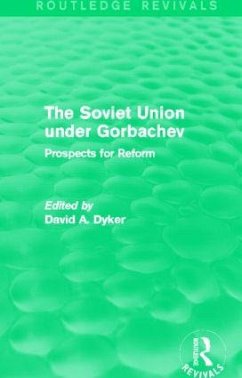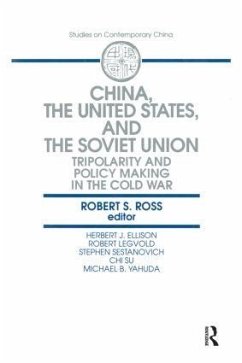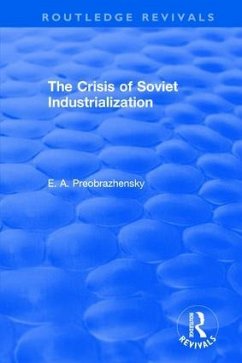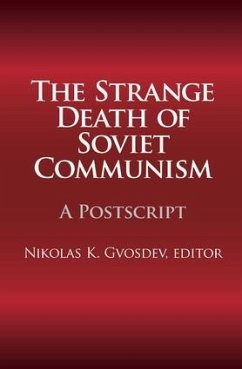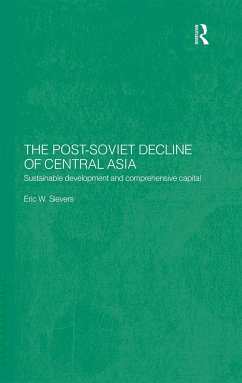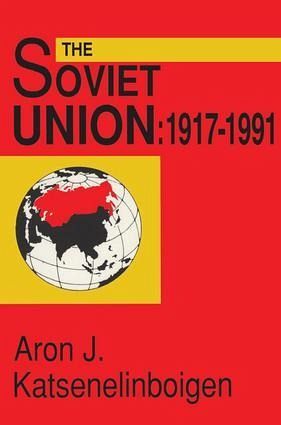
The Soviet Union
Empire, Nation, and System

PAYBACK Punkte
24 °P sammeln!
Political change in the Soviet Union never seemed more likely than in the period of glasnost and perestroika. The Soviet Union: 1917-1991 examines some of the less well explored areas of Soviet political and economic life to develop a feasible set of alternatives for future Soviet development and to establish which ones the system is predisposed to select.Katsenelinboigen takes on these difficult questions. Is it wise to develop glasnost in ways that allow masses to participate in the solution of strategic national problems? Can Soviet military expenses be reduced only to direct ones or is the...
Political change in the Soviet Union never seemed more likely than in the period of glasnost and perestroika. The Soviet Union: 1917-1991 examines some of the less well explored areas of Soviet political and economic life to develop a feasible set of alternatives for future Soviet development and to establish which ones the system is predisposed to select.Katsenelinboigen takes on these difficult questions. Is it wise to develop glasnost in ways that allow masses to participate in the solution of strategic national problems? Can Soviet military expenses be reduced only to direct ones or is the whole Soviet economy military oriented? What explains widespread corruption among Soviet officials? Can market institutions be introduced into the Soviet economy, and if so, how is this best accomplished? Rather than focusing on a single dimension, such as authoritarianism versus democracy, his analysis incorporates multidimensional perspectives (among them, pluralism, division of powers and openness participation of competent and responsible people in decision making) which permit a more precise understanding of the limits of present options and allow him to develop new policy prospects.Although this book is about the Soviet Union, the approaches Katsenelinboigen uses have application in other contexts. His discussion of inflation for example and why it is found in planned as well as market economies has important implications for many developing countries. It will be of interest to those who seek a new perspective on events in the Soviet Union, as well as specialists in international relations, political science, and economics.






